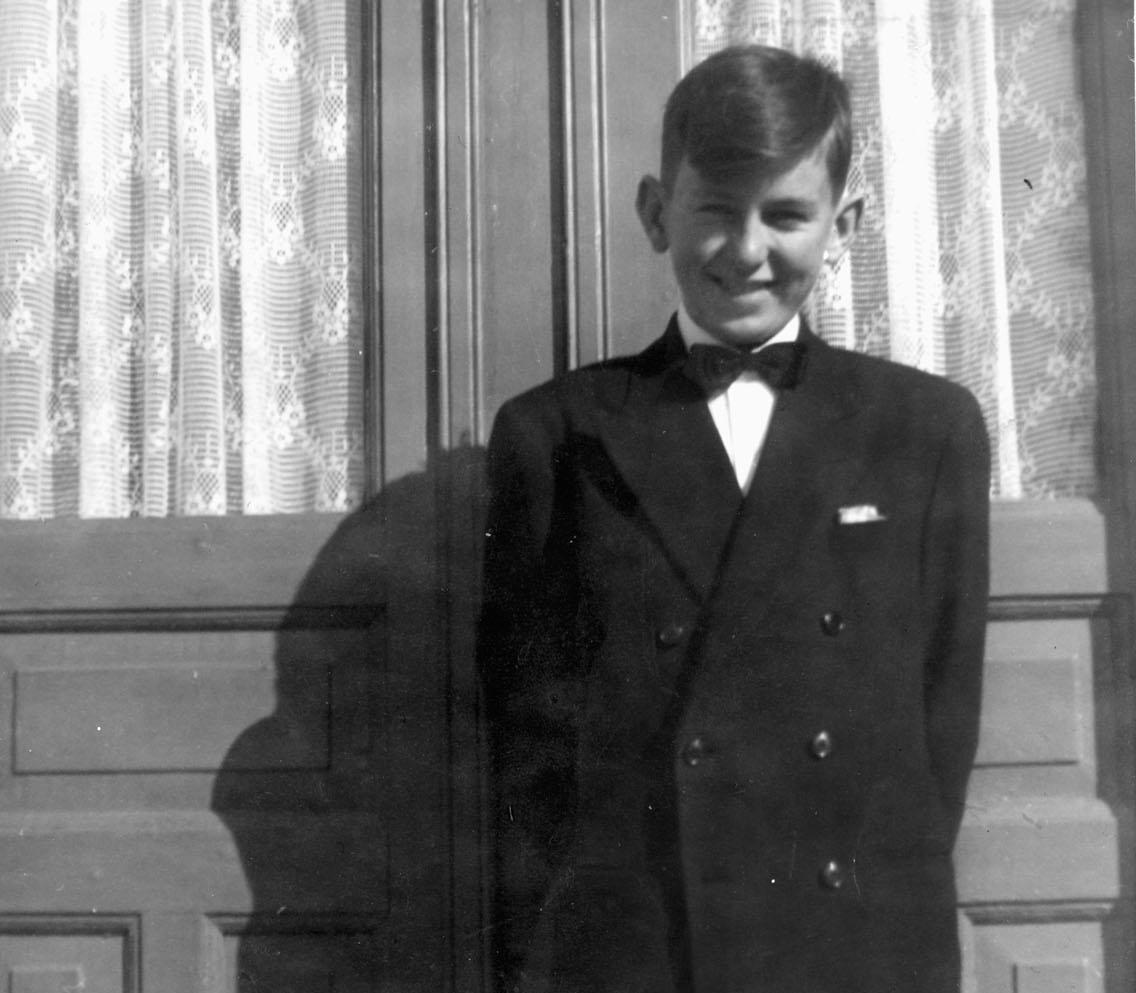"My mother and I lived with my uncle at Tollnes. He was really my mother's uncle. He was like a father to me, and I have never met a kinder man. My mother and I lived on the second floor, where there was a large room and a sleeping alcove. I remember very well that I never got to play with the other children in the area. Every time I went out to play, the parents came and took them home. My hair and skin were darker than the other children’s, and sometimes I was asked if I came from a different country. I didn't know I was of Romani heritage, though I became suspicious over time.
My mother was scared and would never tell anyone who she was. If anyone found out she was of Romani heritage, the children could be taken from her. She had little schooling and was taken from her parents when she was a child. The family she stayed with wasn't nice to her.
Despite her difficult upbringing, my mother was very soft-hearted and a wonderful mother. My mother and uncle often talked about the old days, so I heard stories about the Romani people. My uncle travelled around repairing cooking pots. He made and sold pots and other metal goods, such as gutters. My mother worked in the kitchen in different places, such as in Oslo.
When I was a child, Romani people often came to visit. It was my uncle's family that came. My uncle and my mother agreed that I should be spared from knowing about this family. I later realised why my uncle wouldn't tell me anything about who we were. It was out of fear. The authorities had great power over the Romani people. I asked my mother where we came from, but she didn't answer. I was not supposed to care about my origin.
I eventually got two half-siblings who were five and seven years younger than me – a brother and a sister. They were both born while I lived with my uncle. They were placed for adoption after a while."
The orphanages
"When I was seven, I was placed in an orphanage. The orphanage was run by ‘The White Ribbon’, a Christian organisation. I ran away the day after I got there. My mother and my uncle were both at home. I cried, and my mother cried. I didn't understand why I should be in an orphanage and not with my mother. It was rough and difficult to understand. I ran away three times. Each time I was beaten with birch branches when I went back to the orphanage. This was during the war, and I thought maybe that's why I couldn't live at home. I always asked for my mother at the orphanage but was told I shouldn’t think about her. My mother was denied access to the orphanage. She was permitted to visit only for my confirmation.
I was allowed to visit my uncle, but never my mother. At the orphanage, I was told my mother was inept and useless and shouldn't have had children. Thanks to my uncle, I got to talk to my mother on the telephone. He often took me to the telegraph office to talk to her. He also told me where I could meet her. We had to meet in secret locations in parks or on the street near the orphanage. It was painful and agonizing for both of us. My mother cried a lot when we left each other. When I realised I had to go I always asked my mother, “Why can't I be with you?” She often came up with a practical reason for why it was not possible, but sometimes she told me she wasn't tolerated by the manager at the orphanage.
Holidays like Christmas were nice at the orphanage; we were fine then, were treated very well and got gifts and Christmas dinner. Otherwise, it was very strict. We were spanked for the slightest offence and even had to go out and find the birch branches they spanked us with.
There were children who lived near the orphanage; we had a good relationship with them. The children at the orphanage got along fine also. There were 20 of us, boys and girls. Like the other children at the orphanage, I went to elementary school in Porsgrunn. We didn't get much help with the homework. They didn’t think schoolwork was important, but they were very concerned about us being on time. If we didn't arrive on time, we were beaten and grounded. We didn't have watches, so this wasn't always easy."
Out to sea
"I was in the orphanage for eight years. When I was 15, I was done at the orphanage, and they sent me out to sea. That was supposed to teach me manners. I found it difficult to accept that they decided things for me. I was at sea for three years. It was a great time.
When I got back home, I moved in with my mother. She had moved to Oslo after I was taken from her and worked for many years at the Sætre biscuit factory. She became lonely and bitter and felt betrayed. After my mother died, I learned that I was of Romani heritage. I then contacted the National Archives. My mother's family’s last name was Bredesen, but she had always called herself Larsen. She had even lied about her age. I saw her confirmation certificate. According to what she had said, she would have been 12 years old at the time, which was too young for confirmation. When I found out which family I came from, I picked up the phone and called my relatives. Johan Bredesen turned out to be my mother's cousin and he could tell me about my family.
I felt at peace when I finally found this out."
